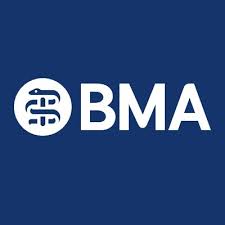Gender Identity and General Practice
Gender Identity and General Practice
Gender identity issues and how they should be managed in general practice is one of the most frequent areas of practice which the LMC receives queries about. This guide will not answer all of the questions but should answer most, and hopefully will signpost you to where to find more information.What are general practices expected to do for patients with gender dysphoria?
GPs and their teams are not given training into gender dysphoria and gender issues and are not expected to be experts in this field. Practices are likely though to be the first point of contact for patients with gender identity questions. Practices should therefore undergo some learning activity so that the whole team can support and provide holistic care for patients with gender identity questions.
Practices should explore the guidance regarding how patients with gender dysphoria prefer to be identified in medical records, and when making contact with the practice. GMC guidance sets out how medical records should be annotated to indicate a person’s preference about their name and sex.
PCSE also have guidance regarding how to change a person’s medical record to reflect their gender identity.
Should practices refer patients to Gender Identity Clinics (GICs)?
GMC guidance states that all GPs may refer to GICs without the requirement for mental health assessment or CCG prior approval. Thus, if a patient requests referral to a GIC practices should do this so that the person can receive the specialist assessment they require.
Should practices prescribe medicines recommended by a Gender Identity Clinic?
Practices should prescribe medication for patients when a GIC requests this, and this should be done by starting a shared care relationship with the specialist team. A shared care relationship will ensure that the specialist team will continue to monitor and support the patient. If the GIC is not prepared to enter a shared care relationship, then the practice cannot safely prescribe the medication, as they have no guarantee that the patient will be adequately monitored and supported.
Many medications prescribed may be done so “off licence” so it is important that the specialist team inform and counsel the patient about the medication use and side effects, and communicate this to the practice.
It is important that patients being prescribed medication continue to attend for follow up and monitoring. When medication is initiated this should be emphasised, so that patients continue to attend their specialist follow up. Practices should remind patients that the practice would have to stop prescribing if the patient chose to cease attending follow up.
If a practice is requested to prescribe medication by a non-NHS Gender Identity Clinic, practices are not obliged to prescribe, as they may not be able to guarantee that the non-NHS GIC has appropriate governance in place to ensure the patient’s safety. Practices should though discuss this with the patient and offer to seek support from an NHS GIC.
Should practices prescribe “bridging prescriptions”?
Trans people sometimes start taking medication from non-medical sources and then request that practices provide this medication whilst they wait for input from a GIC. Practices should speak to these people about the risks of taking medication which does not come from a regulated source, and offer support to expediate a regulated source.
The Royal College of Psychiatrists have advocated a harm reduction approach to issuing “bridging prescriptions”. They advise that practitioners can prescribe medication if
- the patient is already self-prescribing or seems highly likely to self-prescribe from an unregulated source (over the internet or otherwise on the black market)
- the bridging prescription is intended to mitigate a risk of self-harm or suicide, and
- the doctor has sought the advice of an experienced gender specialist and prescribes the lowest acceptable dose in the circumstances.
Should practices highlight that a patient has gender dysphoria when making referrals?
Practices should discuss with patients their wishes for how information is communicated with other professionals. In most instance the person will give consent for the information to be shared.
If a patient does not wish information to be shared, and the referral will not be affected by the patient’s gender, the information should not be shared.
If, however, the referral is affected by the patient’s gender, for instance a referral to gynaecology for a trans man, then the practice should explain to the patient the need to make the nature of the patient’s identity clear.
Practices should also counsel patients about the importance of screening, as certain screening programmes need to be informed of a person’s trans status to continue the recall process. More information is available for patients on the GOV.uk website.
More resources
You can get more information from




